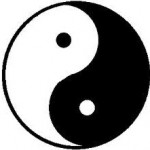Search Results for 'peri mutuel' ↓
November 8th, 2011 — Investing

Taijitu
Let’s apply the Fourfold Problem-Solving technique of last week to an example in the microeconomics level of the economy. Let’s suppose you are part of the lucky 1%.
You manage a buyout fund. A good opportunity comes your way. There’s a company in trouble, and you have the funds to buy it. Should you?
Here are four aspects of that question:
Buy Hold
Walk away Flip
Villains and heroes
Continue reading →
August 18th, 2010 — Investing
Investing is an example of pari-mutuel betting. I discussed this topic in my last post, “Investing is Not the Kind of Gambling You Think! ” Pari-mutuel betting is based on human intelligence, not on probability or mere chance. This means the more you know about investing, the better your “odds” are for winning.
Economists and financial writers often are blissfully unaware of this difference.
They use the word “gambling” in relation to investing in inappropriate ways. They also refer to probability betting as if it applies to betting on the outcomes of activities involving living beings. It doesn’t. Probability betting applies only to inanimate objects like dice, cards, or spinning wheels. It doesn’t apply to the hand or mind that manipulates those objects. Continue reading →
July 26th, 2010 — Investing
Yes, a face can launch a ship, but it’s words that cause wars.
Example 1: Nature means two mutually exclusive things
A conflict between PETA and Park Service rangers can be traced back to a 19th century British philosopher, John Stuart Mill. Mill wrote a book called On Nature. In it Mill noted that we use the word “Nature” to mean two mutually exclusive things: (1) everything except “man” and (2) everything including man (i.e., we too have a human “nature” so we’re a part of Nature).
The confusion begins, said Mill, when people using the word switch back and forth between meanings of the word “Nature.” The conflict starts when people use the same word, “Nature,” to mean two mutually exclusive things.
Continue reading →
